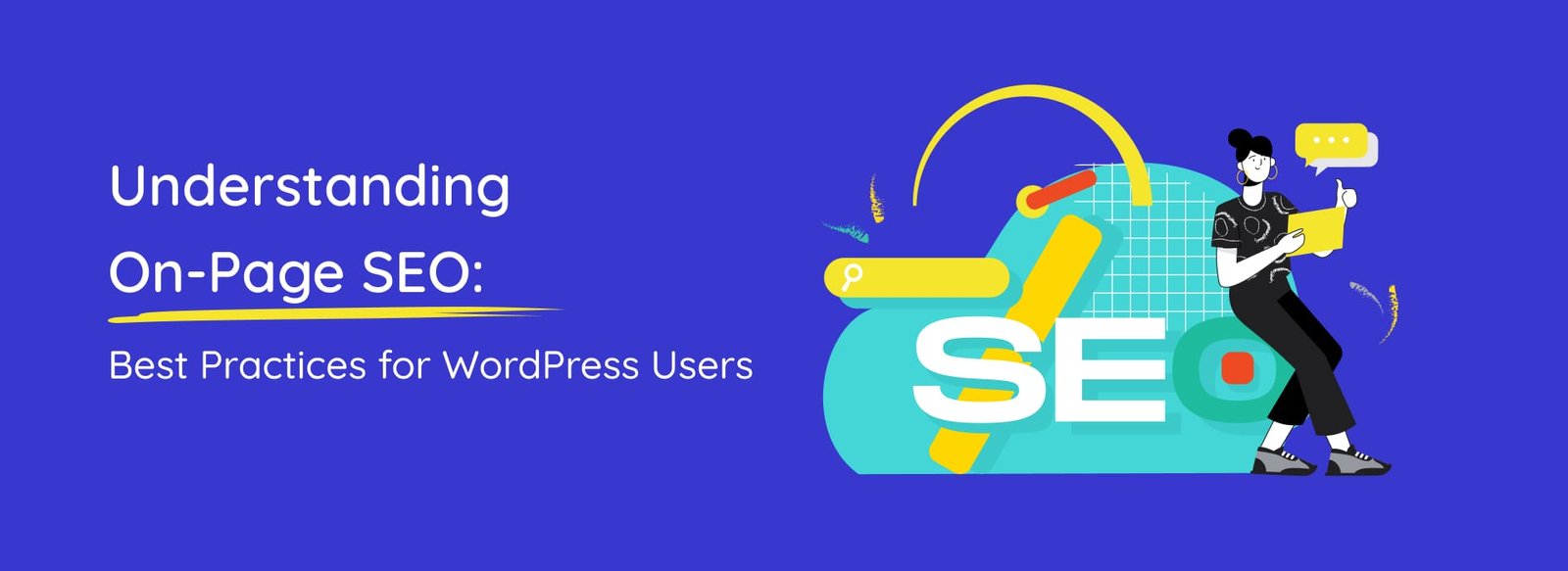7, Jun, 2024() | Ayraxs Seo

7, Jun, 2024() | Ayraxs Seo

If you’re a WordPress website owner or manager, you likely acknowledge the importance of on-page SEO. Understanding on-page SEO elements is essential to improve your website’s visibility and search engine rankings to boost traffic and generate leads.
In this article, we will discuss practical tips and actionable insights that you can use to improve the on-page SEO of your WordPress webpage. Furthermore, you will learn SEO best practices that can be easily implemented in your workflows for maximizing website visibility and organic traffic.
Let’s start by thoroughly understanding on-page SEO.
In layman’s terms, on-page SEO otherwise known as On-Site SEO is the practice of optimizing the on-page elements of a webpage to enhance its visibility and improve search engine rankings. On-page SEO covers anything that can be done directly on individual web pages (or internally) and helps search engines better understand your website and its content.
For instance, if you have a blogging website where you write and publish blog posts, you will use on-page SEO to optimize your site content by adding relevant keywords, meta descriptions, and alt tags within images. Then you’d optimize your website for mobile users and improve loading speeds to help search engines recognize your content and rank it higher in SERPs.
Optimization of factors such as written content, HTML source code, site speed, user experience, and mobile responsiveness are key components of on-page SEO.
Now that you understand the concept behind on-page SEO, let’s discuss some on-page SEO best practices for WordPress users.
High-quality and engaging content is the foundation of on-page SEO.
Search engines index your websites by sending out their crawlers (spiders) to explore different websites. In this process, they evaluate your content and determine what kind of information it contains. This data is then fed to the search engine’s algorithm to determine how well the content of a particular site answers search queries from users.
Therefore, webmasters should create valuable content that addresses user queries, includes relevant keywords naturally, and offers a pleasant reading experience.
Use the following tips to optimize your content effectively:
Users’ search queries contain distinct keywords that indicate their search intent and the specific information they seek. Hence, finding and integrating relevant keywords within the content is essential to attract organic traffic.
You can use tools like Ahrefs, SEMrush, or Moz Keyword Explorer to find keywords according to their search volumes, and competition.
Once you’ve chosen your target keywords, strategically place them in key areas of your WordPress website such as:
Select a theme that is lightweight, mobile-responsive, and optimized for speed. A good quality theme provides flexibility for customizing key SEO elements, such as titles, header tags, and meta descriptions.
Moreover, WordPress SEO plugins like Yoast SEO or Rank Math can be used to simplify your on-page SEO efforts. These plugins offer a variety of features such as content analysis, keyword optimization, meta descriptions, and XML sitemap generation.
Slow-loading websites increase bounce rates and negatively impacts user experience, directly influencing SEO rankings as search engines consider loading speeds when evaluating websites.
You can optimize your WordPress site’s loading speed using the following tips:
To analyze or evaluate the loading times of your website use tools like GTmetrix or Google PageSpeed Insights. These tools can easily help you identify areas of improvement.
Your title tags and meta descriptions are like the first impressions of your web pages in search results. Craft compelling, keyword-rich titles (under 60 characters) and descriptions (under 160 characters) that entice users to click through.
Use plugins like Yoast SEO or Rank Math to streamline meta-tag optimization and improve click-through rates in search results.
Schema markup creates structured data about your site’s content that allows search engines to understand your content better.
Successful implementation of this technique can help you earn rich snippets that show star ratings, reviews, FAQs, and other relevant information about your business or website.
It is imperative to monitor your site’s performance and make improvements regularly. Analyze SEO performance by tracking key metrics such as keyword rankings, organic traffic, bounce rate, and conversion rates, and make data-driven decisions to fine-tune your SEO strategy.
This can be done using tools like Google Search Console and Google Analytics or SEO plugins (e.g., Yoast SEO, Rank Math).
Additionally, regularly update outdated content, check for issues like broken links and stay abreast of search engine algorithm changes.
On-page SEO plays a key role in ranking WordPress websites on search engines. Consider the aforementioned best practices to develop an effective on-page SEO strategy for your business.
If you’re struggling to attract organic traffic or having trouble ranking your website on search engines consider leveraging the on-page SEO services of a reputable agency.
Ayraxs is a results-driven SEO services agency that will hold your hand throughout your business endeavors and optimize your websites to maximize visibility and organic traffic.
Start with installing and configuring SEO-friendly themes and plugins. Then conduct keyword research, create high-quality content, and include relevant keywords throughout the text. Optimize meta tags, permalinks, images, and the loading speed of your website.
Here are some tips to make your site SEO-friendly:
On-age SEO is the optimization of internal or on-page elements (e.g., keywords, meta tags, alt text) to enhance site ranking, while off-page SEO is the optimization of external factors that impact your site’s ranking such as backlinks, social media mentions, and pay-per-click.